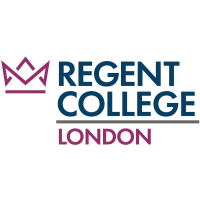
Let’s begin with the basics, what actually is Higher Education?
Higher Education is study beyond the Level 2 (GCSE) qualifications you take at school. It is completed once you have left compulsory education at age 18 and takes place at universities and Further Education Colleges. Higher Education gives you the chance to study a subject they have a keen interest in and wish to pursue a career in. For example, if you have a dream of becoming a nurse, you would then find courses that can provide you with the skills and knowledge needed to become a nurse, such as the BSc Health and Social Care Degree at Regents College London.
Higher Education, also known as post-secondary education is a great journey to undertake once you have finished school. It’s a journey that involves you qualifying with a degree upon completion. There are various degrees or qualifications that you can receive at the end of your higher education period, this may vary in title and could be:
Regent College London offers a wide range of Higher Education Qualifications that get a special mention at the end of the blog post. But for now, we’ll give you a rounded view of what Higher Education is and its great benefits.
What are the different Higher Education Levels?
There are various levels within the Higher Education Sector, however, they are mainly Levels 4-6. The main qualifications that are offered within Higher Education are:
How long are Higher Education Courses?
This totally depends on your Course and Subject. Most qualifications take around 3-4 years to complete, however, some can take around 1-2 years. Top-up degrees are usually one year, whereas, HNDs take two years to complete.
What courses can I do?
This again, is totally up to you. There are many courses and different subject areas out there. It just depends on where you see your career going. For example, if you wish to work in the Business World, you’re most likely going to study for a Business related degree.
What are the differences between Higher and Further Education?
It can get a little confusing knowing the different types of Education. Further Education (FE) on the other hand, is education past Level 6 and includes postgraduate study. Postgraduate study can include completing a Master’s Degree or a PhD. These are Level 7 qualifications.
What are the benefits of Higher Education?
There are many great benefits of studying Higher, it’s often the number one question before you leave school, where are you studying? What are you studying? However, you don’t have to study higher straight after school. Many students take a gap year or take a break from education all together, and return later in life when they’re ready.
All Higher Education providers will allow you to access education at any age. For example, Regent College London encourages students of all ages and backgrounds to come and study on their courses. Here are just a handful of benefits that you can enjoy once you have completed your qualification:
Is Higher Education for me?
Now that you’ve read all about Higher Education, you might still be wondering if it’s for you. Well, even though we’ve listed a great bunch of benefits of studying Higher Education, it is totally down to you. There are many course subjects and types of degrees that you can look into, to see if studying higher is for you.
Is Higher Education expensive?
This is dependent on the type of degree you study. We would recommend looking at individual university websites to view their range of courses. For example, at Regent College London, they offer:
You can have a browse of Regent College London Course Fees here.
